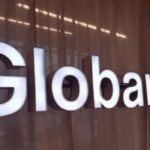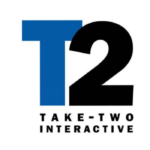We have seen brands and companies perish or become history on failing to predict the future. Does this also hold true for talent hunt?
Ravi Mishra, regional head – human resources, South Asia & Middle East, Birla Carbon
Success always lies with the person, who knows the future before others, and is able to work upon it.

Potential for future role in addition to good performance/ track record is one of the key elements, when it comes to talent. This emphasises the importance of knowing the future role and competencies required to choose the right talent. Based on the capabilities to know/predict the future, we need to search and decide the right match to deliver.
This has influenced the importance of predictive analytics in our talent staffing, which requires lots of data mining. It also requires an understanding of different perspectives as well as the art of scenario making to visualise the future, in order to establish the competencies required. Predictive analytics plays a critical role in forecasting and establishing the future needs so that talent hunting and banking can be successfully done.
One very recent example is the controversy surrounding Nestlé’s Maggi. On the very first day, when the Uttar Pradesh government banned or suspended it, instead of taking quick affirmative action based on historical examples, to respond as a predictive analyst, the Company created trouble for itself by getting into a pacifying mood. It should have taken the art of leadership to the next level by promptly declaring to hold back the sale of the particular product across the country, with immediate effect, till it comes clean. It should have joined hands with competent government agencies and engaged agencies/associations related to food product research, for full investigation.
We have seen how automobile and pharmaceutical companies have recalled their products from the market to establish their positions as champions of product quality and taking onus of responsibility. Nestle woke up too, but a tad late.
Success always lies with the person, who knows the future before others, and is able to work upon it. The case of the rise and fall of Nokia in the mobile handset industry is also not very old. The absence of a predictive analyst has always been a concern. Considering the pace of competition, which has now become truly global, a predictive analyst can offer paramount competitive advantage.
Organisations which failed to value the role of predictive analysts in hunting for the right talent have almost always met with failure. I strongly believe that the future lies with the predictive analyst. We have always seen our grandparents and great grandparents using the services of astrologers to know what lies ahead. Similarly, a predictive analyst is important to organisations to gain an edge in terms of hunting for future talent.
Biswarup Goswami, V-P & head-people energy process (global) & certified executive coach, Galaxy Surfactants
Predictive analysis for talent hunting can be an effective tool, but without the accurate marksmanship and good influencing skills, it will be futile.

To begin with, we should ask ourselves.
1. Does a hunter analyse before going for the kill?
2. On the basis of his analysis, can he predict whether he will return with a prized catch each day?
Even if the answer to the first question is in the positive, the answer to the second one will be in the negative. Similarly, it is a ‘yes’ as well as a ‘no’ for the big questions.
If we look at the traits of a smart hunter, we will find similarities with that of a good doctor or even a good photographer. They are all steady, calm, focussed and disciplined.
A good hunter has the patience to acquire the skill of extremely accurate marksmanship, although, the right opportunity, and a bit of luck are also important. Therefore, I believe talent hunting is both an art and a science.
Predictive analysis for talent hunting can be an effective tool, but without the accurate marksmanship and good influencing skills, it will be futile.
Often, we hear about an active talent in the marketplace, but social media channels and job portals also provide access to passive, yet better talent.
In the years that I have spent in the manufacturing sector, I have realised that it is better to run machines on preventive maintenance as per planned shutdown rather than breakdown maintenance. Similarly, for the future of talent hunt, one will need analytics for additional support.
Vinay Jaswal, V-P, human resources, InterGlobe
Predictive analytics is a win-win proposition for either side in this scenario.

The next big wave for creating HR value proposition is underway through HR analytics. Combining human touch with the absoluteness of the stories that numbers foretell, is the way forward for HR teams. In this light, predictive analytics holds a very important portfolio in the HR folder.
Talent hunt, by nature, is a bit of a ‘shooting in the dark’ exercise. Prospective candidates look for an ideal marriage with an organisation, which has a perfect match with their value systems and ambitions. But they do so without putting their true self on the table for the future suitor. For the lack of brand strength, most organisations also avoid the ‘De selling’ game in this match for finding the right talent. All this lends a strong element of punt in the talent hunt process.
Predictive analytics is a win-win proposition for either side in this scenario. The seeker can do the homework on an organisation using the social media, reference channels, peer reviews and website views to come up with his/her own objective conclusion.
However, the organisation stands to benefit the maximum, if it inputs all variables, such as work process, client needs, work environment, demographics, attrition pattern, top talent pointers, and social media into an algorithm to come up with a near-perfect secret sauce with the right fit for its need. To a great extent, this cuts the subjectivity in the process.
While most frontline IT companies with large onsite/customer-facing businesses use predictive analytics to cut their enterprise talent risks, service and manufacturing industries are yet to embrace this science in earnest.
At InterGlobe, we use predictive analytics for talent hunt, both as part of our recruitment as well as the talent management process. This practice is more prevalent in the Airline and IT/ITES businesses, as these businesses typically have a huge B2C or customer-facing exposure.
Value our content... contribute towards our growth. Even a small contribution a month would be of great help for us.
Since eight years, we have been serving the industry through daily news and stories. Our content is free for all and we plan to keep it that way.
Support HRKatha. Pay Here (All it takes is a minute)





































Good relate!!
Very informative and eye opening. Keep it up.
Very impressive article – It is required to predict the future business challenges and act with responsibility towards society reactions.
M GOPI
HR Manager
Heard a lot about predictive human analytics and made some efforts to know details. However i wonder whether are there any suitable tools available for common HR people to use (except data analyst) ? Unless this is available, i guess this concept will just remain a new HR fad. Anyone has more practical info, i will be pleased to collaborate.
Indeed enlightening and inviting for a complete transformation in the HR approach.